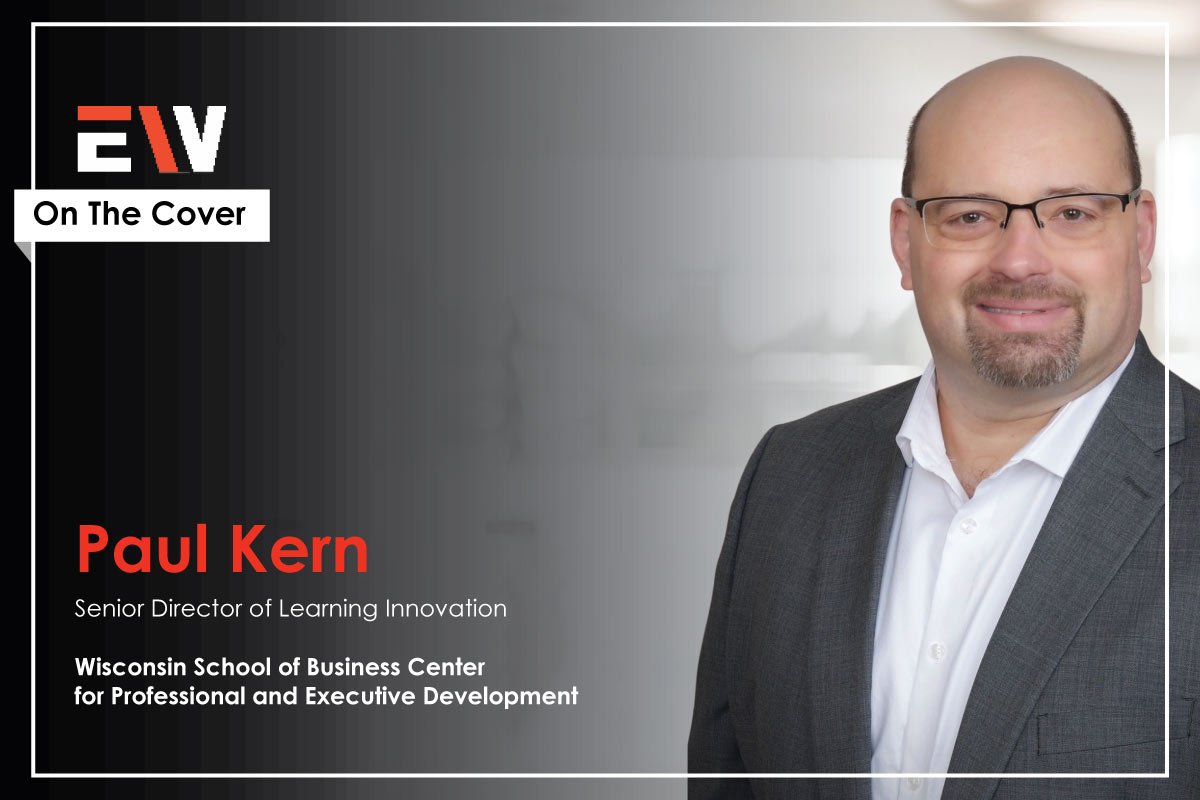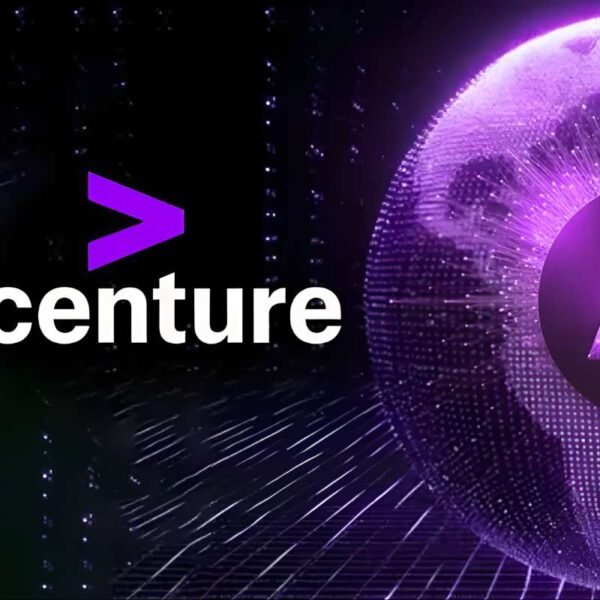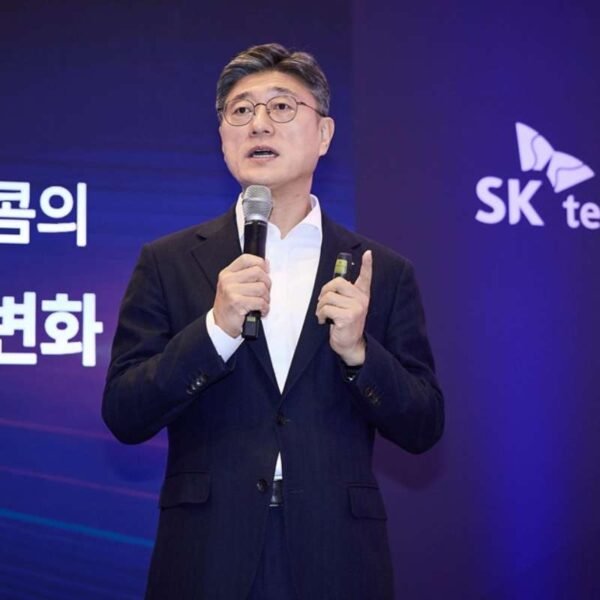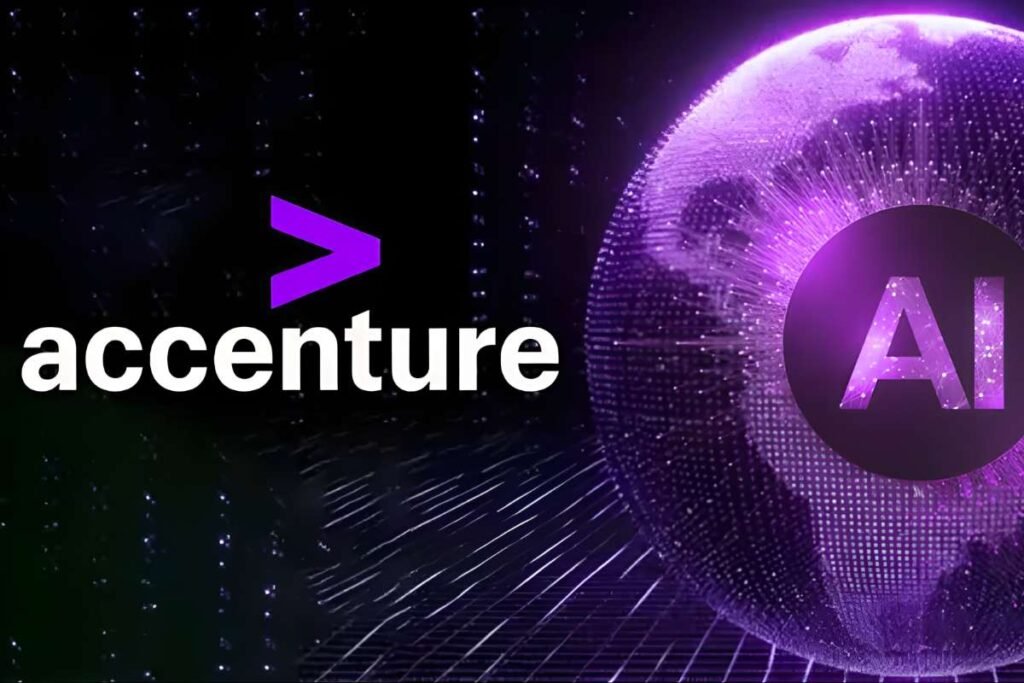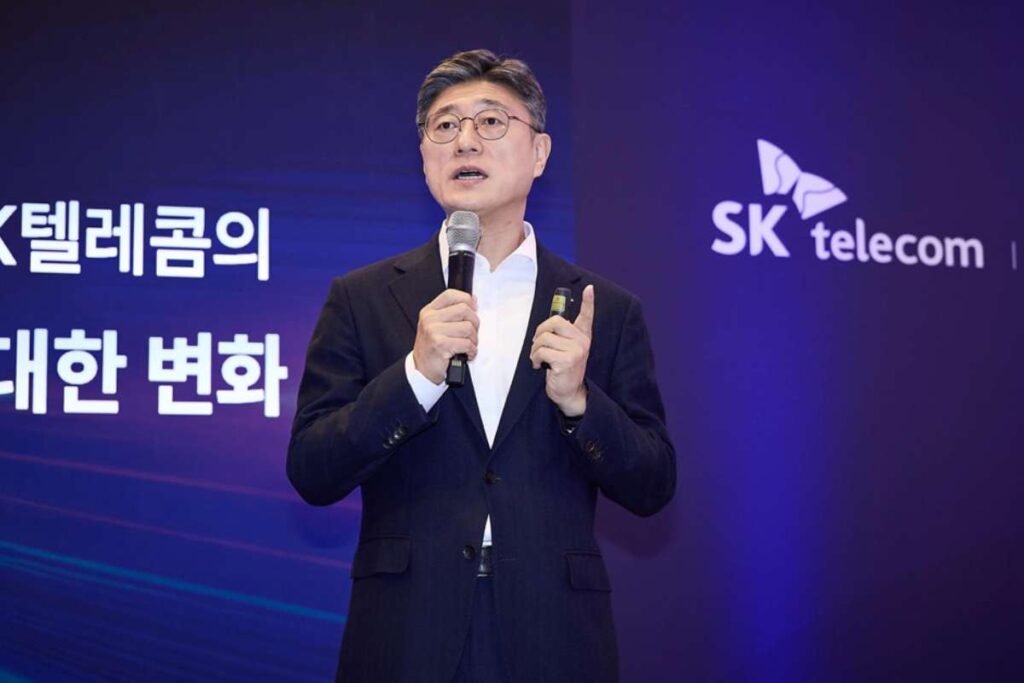The world of work is transforming at a speed few could have predicted. Skills become outdated almost as quickly as they are learned, and organizations are under constant pressure to help their people adapt. Leadership and talent development in this context is more about creating a culture of continuous learning where curiosity is encouraged and progress is measurable.
At the centre of this shift are leaders who can see education not as a static system, but as a living, evolving ecosystem. Among them, Paul Kern stands out. With a career that has taken him from the energy of K-12 classrooms to the complexity of corporate training and the innovation of executive development, Paul has consistently proven that learning, when designed with care and foresight, can drive real transformation. In his most recent role, as the former Senior Director of Learning Innovation at the Wisconsin School of Business Center for Professional and Executive Development (CPED), his work continues to shape the future of professional and leadership development.
From Classroom Curiosity To Lifelong Lessons
Paul’s journey began not in a corporate office, but in a classroom filled with young learners. Teaching first and second graders and then serving as a technology integrator taught him the importance of adaptability. Every day brought new challenges, from integrating emerging tools into lessons to meeting students where they were academically and emotionally.
Armed with a Master’s degree in Curriculum and Development, he carried forward a lesson that has shaped every role since: learning thrives when curiosity is at the centre. His later work as an adjunct professor for universities and technical colleges extended this belief to adult learners. He found that engagement increased when learners were encouraged to explore, ask questions, and connect theory to practical practice. This blend of curiosity and relevance became the foundation of his approach to education and training.
Bridging Business And Learning
Transitioning into corporate learning marked a defining step in Paul’s career:
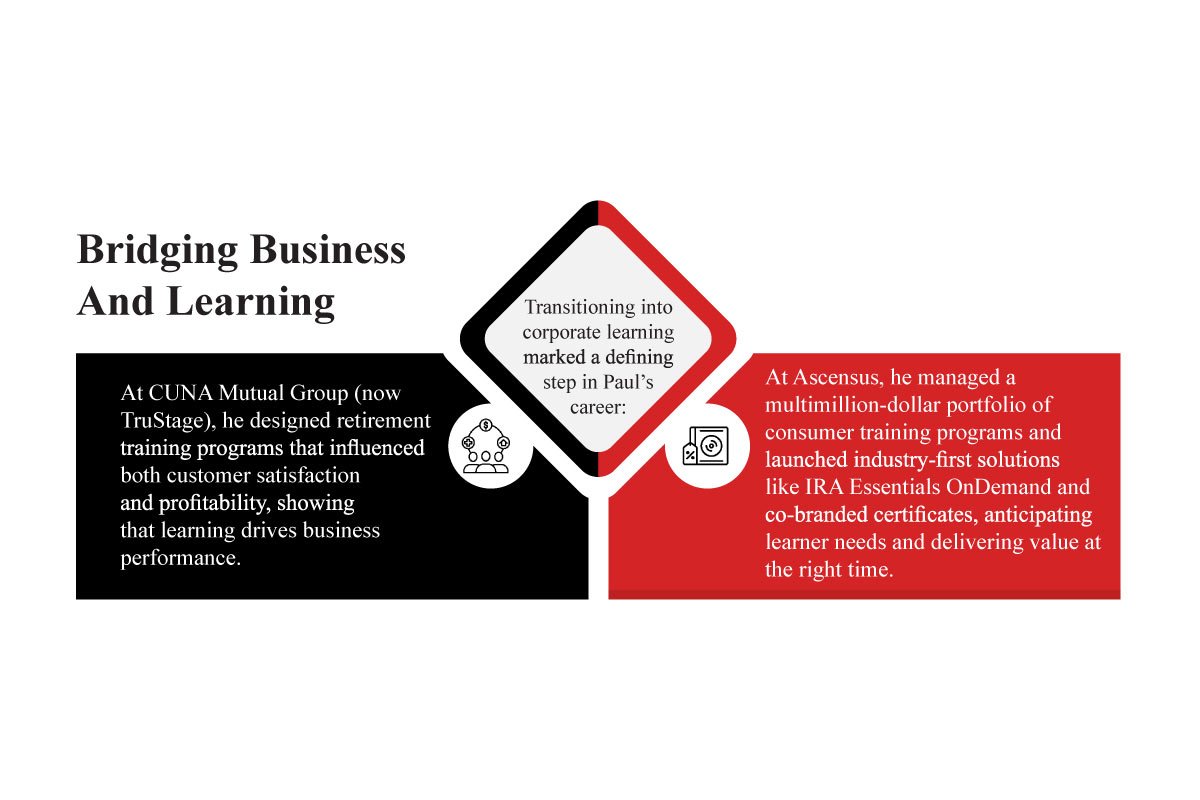
- At CUNA Mutual Group (now TruStage), he designed retirement training programs that influenced both customer satisfaction and profitability, showing that learning drives business performance.
- At Ascensus, he managed a multimillion-dollar portfolio of consumer training programs and launched industry-first solutions like IRA Essentials OnDemand and co-branded certificates, anticipating learner needs and delivering value at the right time.
These roles positioned him as a bridge between business strategy and learning innovation, demonstrating how education can be a true driver of growth.
Leading At Scale With Lessons In Complexity
The move to WPS Health Solutions broadened Paul Kern’s scope dramatically. He led a national team responsible for operational training (including trainers and instructional designers), quality management, and government audit—an experience that demanded a new level of leadership. One of his most challenging projects (onboarding more than 1,200 employees under tight deadlines for a federal contract) tested every skill he had developed.
The project required discipline, structure, and relentless communication. Daily stand-ups kept everyone aligned, while transparency ensured no detail was lost. The outcome was more than just a successful onboarding. It became a scalable model that supported hundreds of future hires and reinforced a powerful leadership lesson: great teams, when trusted and aligned, can overcome challenges of any scale.
As Paul Kern reflects, “What stood out most wasn’t the complexity of the challenge, but the power of a unified team. When you build and trust the right people, there’s no challenge too large to overcome.”
A Leadership Philosophy Built On Values
Paul’s leadership is anchored in four clear principles:
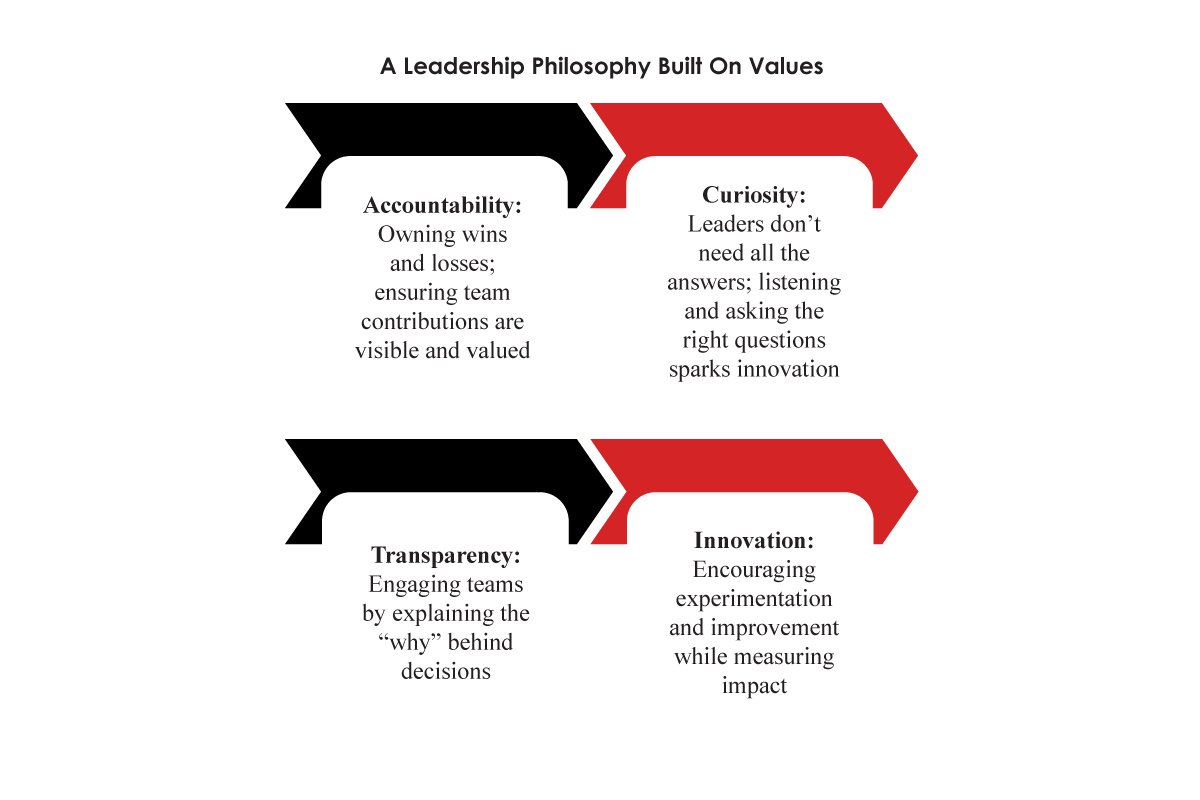
- Accountability: Owning wins and losses; ensuring team contributions are visible and valued
- Curiosity: Leaders don’t need all the answers; listening and asking the right questions sparks innovation
- Transparency: Engaging teams by explaining the “why” behind decisions
- Innovation: Encouraging experimentation and improvement while measuring impact
The strength of this framework lies in how the values reinforce each other. Accountability gives innovation purpose. Curiosity fuels creativity. Transparency builds trust, creating the space for experimentation. This cycle has shaped not only Paul’s leadership but also the cultures of the organizations he has served.
Driving Change At CPED
At CPED, Paul Kern’s leadership has translated into tangible, lasting changes. He spearheaded the creation of the organization’s digital learning capability, introducing on-demand and blended programs that expanded access and flexibility for learners. Recognizing the need for concise, impactful learning, he oversaw the launch of microlearning modules specifically designed to reinforce behavioral skills after training. The result was a 4.1 out of 5 satisfaction rating and strong learner engagement, proving that shorter, targeted learning moments do play a meaningful role in long-term skill adoption.
Rather than treating accessibility as an afterthought, he built it into the DNA of CPED’s instructional design. This shift required training design teams, collaborating with accessibility experts, and embedding accessibility checks into each program development. The outcome was a portfolio of programs that delivered on business goals and met the needs of a wider, more diverse set of learners.
Under his leadership, the Center also placed strong emphasis on talent and training. Microlearning was positioned as a bridge between classroom learning and real-world application, ensuring skills were not just taught but sustained. Teams underwent specialized training in accessibility, equipping them with the tools and confidence to deliver inclusive learning experiences. By fostering adaptability and creative problem-solving, Paul cultivated a culture where talent development was integral to innovation and long-term organizational growth.
When Technology Is Perceived As A ‘Human Enabler’
While technology often dominates discussions about the future of education, Paul Kern views it as an enabler rather than a disruptor. His philosophy is that technology should enhance the human side of learning, not overshadow it.
At CPED, this has meant piloting tools with care, testing them in real settings, and refining them based on feedback. Data analytics has provided insights into learner engagement, while AI has accelerated content creation. Yet each step has been taken with one question in mind: Does this make learning more meaningful for the participant?
By embedding accessibility and inclusivity into every decision, Paul has shown that technology-driven innovation can be both cutting-edge and equitable. In his view, the future of learning is not defined by tools alone but by how thoughtfully they are used.
Anticipating The Future Of Learning
As organizations prepare for the years ahead, Paul sees several trends reshaping leadership, professional, and talent development. Some are already underway, while others are just beginning to take root. What unites them all is the need for adaptability and intentional solid instructional design.
The first, he believes, is the rise of ethical leadership in an AI-driven world. As AI becomes more embedded in learning systems, the question is no longer whether it will be used but how. Leaders must ensure that AI-powered tools are deployed with fairness, transparency, and accountability. From his perspective, the role of educators and L&D professionals is to establish guardrails so that technology supports human decision-making rather than undermining it.
Another significant shift is the move toward skills-first learning. Job titles and rigid career ladders are giving way to capability-based models, where learners build clusters of skills that can be applied across industries and functions. This approach provides organizations with the flexibility they need in volatile markets while giving individuals greater ownership over their professional journeys.
Blended learning will also continue to expand, bringing together asynchronous and synchronous ( in-person or live learning sessions online) experiences into a seamless whole. Microlearning, in particular, is proving its value. Short, targeted bursts of content allow professionals to engage with learning in real time, making it a natural part of their workflow rather than an interruption to it.
Underlying all of this is a cultural shift: learning will no longer be an isolated event but a continuous journey, woven into the rhythm of everyday work. Organizations that embrace this mindset will not only equip their people with skills but also create cultures that thrive in uncertainty. “The leaders who succeed,” Paul Kern explains, “will be the ones who see learning as an evolving ecosystem, not a checklist item.”
The Core, Foundational Elements Of A Visionary Leader
When asked what defines a truly visionary leader in education and training, Paul points to a blend of qualities that go beyond foresight. Visionary leaders, he believes, are defined not just by their ability to imagine the future but by their persistence in bringing that vision to life.
Foresight is where it begins. Visionary leaders anticipate change, whether in technology, workforce expectations, or industry trends, before it fully arrives. They pay attention to weak signals in the environment and translate them into actionable strategies. But foresight alone is not enough. Without adaptability, even the best vision risks being derailed by unexpected realities. Educational landscapes are in constant motion, and visionary leaders must pivot without losing sight of their core purpose.
Empathy is equally central. Education is ultimately about people—learners, providers, and the broader communities they serve. Visionary leaders listen carefully, seek out diverse perspectives, and build programmes that reflect a wide range of needs and experiences. This inclusivity, Paul Kern argues, is not just ethical but also practical.
Inspiration is what transforms a vision into a collective movement. Leaders must communicate their ideas in ways that energise others and make them feel part of something bigger. In Paul’s view, inspiration is less about lofty speeches and more about creating shared ownership. It is about ensuring that teams, stakeholders, and learners all see themselves as contributors to a common goal.
Finally, visionary leaders model continuous learning themselves. They remain open to feedback, stay curious, and embrace growth as an ongoing process. As he frames it, “Visionary leaders don’t just react to trends, they anticipate them. But what matters most is keeping people at the centre of every decision.” It is this combination of foresight, adaptability, empathy, inspiration, and humility that, in his eyes, separates those who simply manage change from those who redefine what education can be.
The Journey Ahead
Looking forward, Paul Kern envisions leadership and talent development as a flexible ecosystem of learning rather than a series of isolated events. Blended formats combining in-person sessions, virtual collaboration, and on-demand resources will become the norm, allowing leaders to learn continuously and apply skills immediately.
Microlearning will play a critical role, offering leaders timely insights that reinforce habits and extend the impact of longer programmes. Digital accessibility will remain non-negotiable, ensuring every resource is designed to be inclusive. Technology, particularly AI and analytics, will personalize content, speed up delivery, and measure outcomes in real time.
Yet Paul Kern’s vision is not limited to tools. For him, the future of learning must be deeply tied to real business challenges. Programmes should not only build knowledge but also help leaders and employees apply it directly to their contexts. This integration ensures that leadership and talent development delivers a return for both the individual and the organization. For Paul Kern, the journey ahead is less about chasing trends and more about creating meaningful, lasting impact, one programme, one learner, and one organization at a time.

